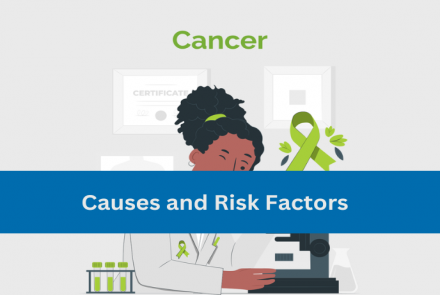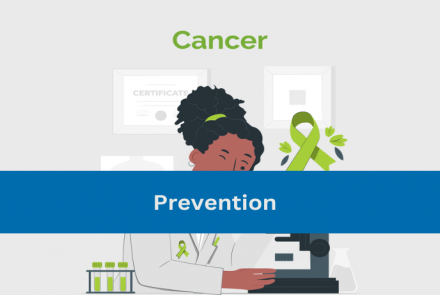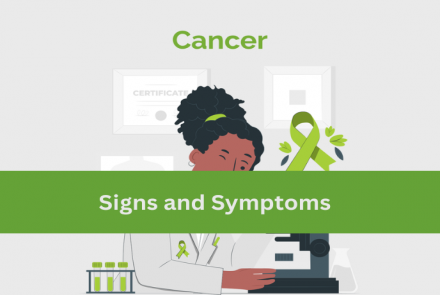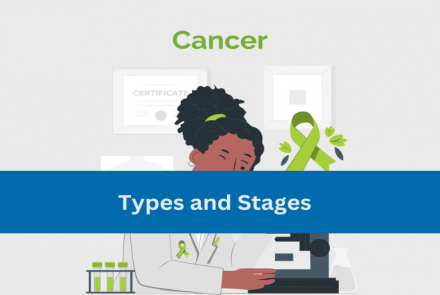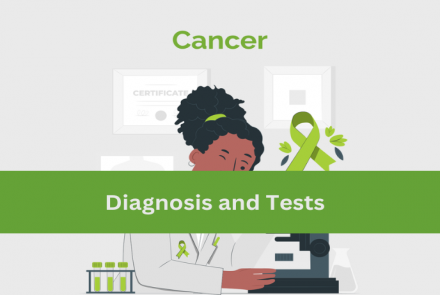What causes cancer?
Understanding the causes and risk factors can help in cancer prevention efforts and early detection strategies. Here are some common triggers:
Genetics - Genetic predisposition can increase the risk of certain cancers, especially in families with a history of the disease. Each cell in our body contains DNA, which controls its action. Any change or mutation to the DNA that damages the genes involved in cell division can lead to cancer. Cancer occurs when because of gene…
Latest Stories
- Cancer accounted for an estimate 9.6 million deaths in 2018. This cancer burden can be reduced by avoiding key risk factors, early detecttion and management of patients. The risk of developing cancer depends on genes, environment and lifestyle. If the cancer is linked to certain behaviours, it may be prevented. Here are some dos and don’ts: Do not use tobacco (smokless and smoking) to protect against oral, lung and several other cancers Do not drink excessive alcohol to protect against liver…
- Cancer symptoms depend on the site and size of the cancer and how much it has affected the organ. If the cancer has spread, symptoms may appear in different parts of the body. Common symptoms include: Unexpected weight loss – Unexplained weight loss, without changes in diet or exercise can be a symptom of various cancers, including pancreatic, stomach, oesophageal, and lung cancer. Persistent fatigue and fever that does not improve with the rest, often caused by the body’s immune response to…
- Cancer is usually named after the part of the body where it originates. According to WHO, there are 20 million cancer new cases and 9.7 million deaths globally. Approximately 55.3 million individuals were estimated to have survived within five years after being diagnosed with cancer. One out of every five individuals will experience cancer diagnosis in their life time. The five top most common cancers among men, globally, are: Prostate Colorectal Lung Skin cancer Testicular…
- Early detection can improve the effectiveness and success of the treatment. Depending on the type of cancer, the doctor may recommend some of the following: Imaging techniques such as X-rays, CT scans, MRI scans, and ultrasound to locate the tumour and the organ affected by it. PET scan (Positron Emission Tomography): Involves the injection of a radioactive tracer to highlight areas of cancer cells. Blood samples are analyzed for signs of cancer, which may include cancer cells, protein, or…
- Treatment of oral cancer involves surgery, radiotherapy, chemotherapy, targeted therapy or immunotherapy. Treatment plan is decided based on severity, stage of the cancer and patient’s condition. Doctors may recommend some of the following: 1. Surgery – Surgical treatment is planned based on size, stage of cancer and patient’s condition. Tumor excision - It is done to remove the tumour and surrounding healthy tissue margins to ensure complete destruction of cancer cells. Excision depends on…
- Apart from the treatment options, the following are important for management of oral cancer as well: Food and nutrition Eating right is a key part of cancer treatment. You need to keep your body as strong as possible before, during and after treatment, so you need to take in enough nutrients. Eating enough proteins and calories will help your body deal with the treatment and fight off infections. Weight loss or malnutrition presents a real life risk for cancer patients. But for some oral…
- Stages of oral cancer TNM Staging of oral cancer. T stands for tumour size. TX- Primary tumour cannot be assessed T0- No evidence of primary tumour Tis -Carcinoma in situ T1- Tumour 2 cm or less in greatest dimension T2 -Tumour more than 2cm but not more than 4cm in greatest dimension T3 -Tumour more than 4cm in greatest dimension T4 - Tumour invades adjacent structures, eg, through jaw bone, jaw nerve, floor of mouth, skin of face. N stands for lymph node involvement. NX:…
- If you have any of the following signs or symptoms, see your dentist or a General Physician: Swelling, ulcer or any type of growth in the oral cavity or around the mouth White or red patches on lips, gum, tongue or mouth lining A lump that can be felt inside the mouth or on the neck Pain or difficulty chewing, swallowing or speaking Continued hoarseness of voice Numbness or pain in any area of the mouth that doesn’t go away Swelling of the upper or lower jaw Sudden loosening of teeth…

